Hello!
It’s me Immaculata (also, Nneoma. I glitched a bit in the intros this week and in the spirit of the episode with Amarachi… maybe now I want the public to call me by my Nigerian name not my Catholic name?)
This past week on the podcast, I shared an audio essay on Tuesday, and for the weekend episodes—powerful, fun conversations with Nigerian PhD researchers Amarachi Iheke (School of Security Studies, King’s College London) and Adefolatomiwa Toye (School of Architecture, University of Liverpool).
Listen to chapter 2 above, and for the two conversation episodes, check here for links from wherever you listen to podcasts.
Please spread the word, rate or leave a comment if you enjoy an episode. Word of mouth goes a long way. Here’s what some people have said:
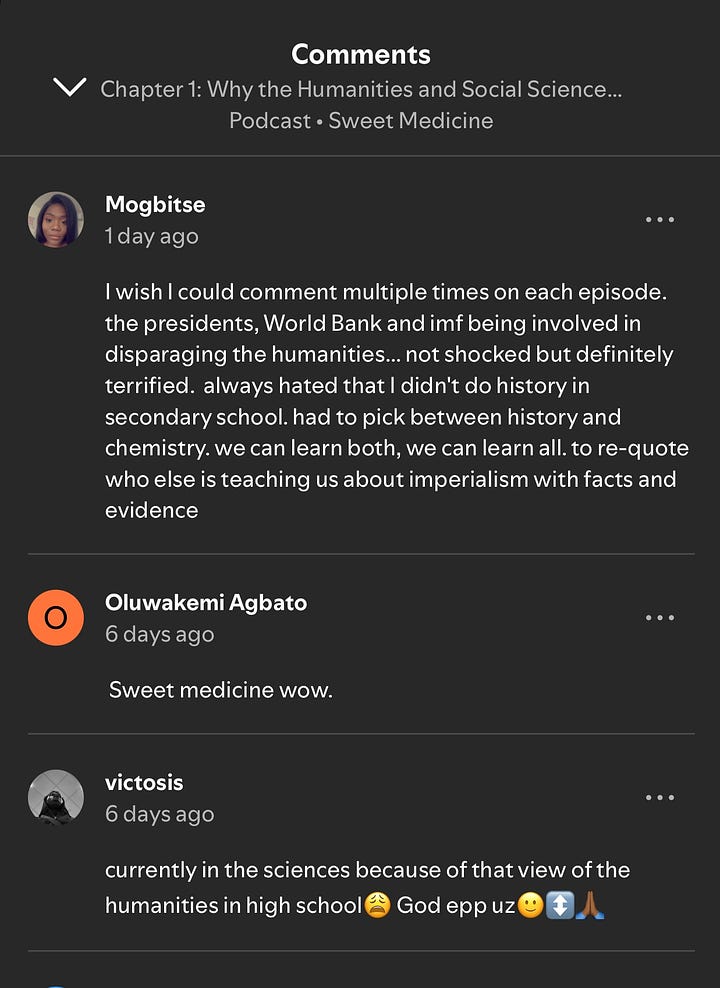
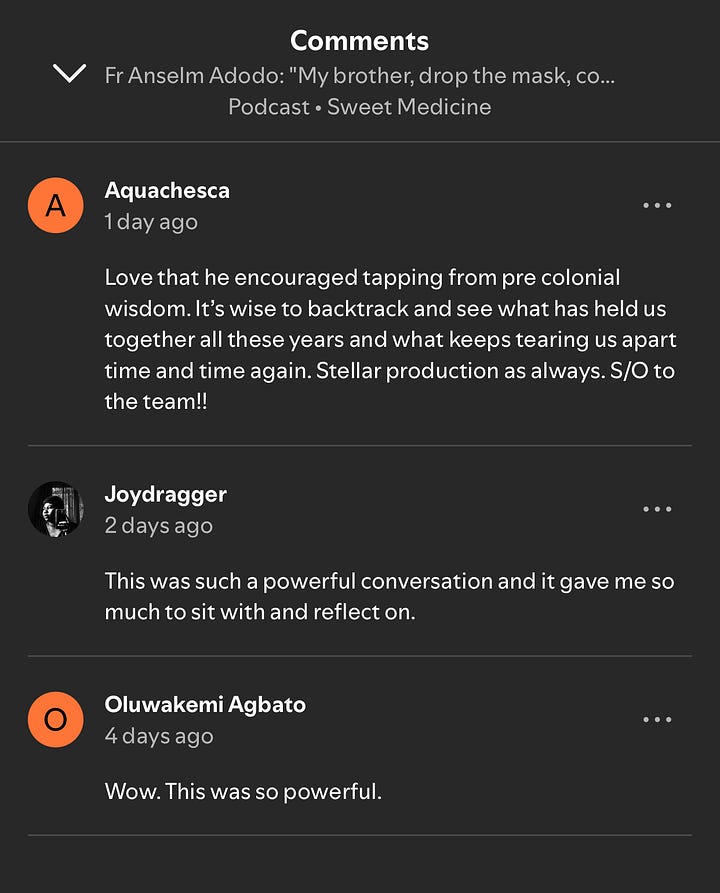
What do we do with History? (listen above)
Often I hear young people say, “Thank God our generation is documenting now. Thank God we are only just starting to appreciate archives.” Unfortunately, we are not the first. As Mrs Kudirat Ayoola, the lead archivist at the National Film, Visual and Sound Archive (NFVSA) in Jos, said to me in an interview about the economics of running a public archive in Nigeria: “better soup, na money kill am.”
In this episode, I propose we do four things with with History, the discipline:
1: Accept that it is not the be all and end all, and that it will not prevent existential death.
2: Make it in our backyards.
3: Be transparent with it.
4: Fund It!
02:30 Exploring my personal history and education
11:42 Accept that it is not the be-all and end-all
16:44 Make It In Your Backyard
18:45 Be Transparent With It
21:06 Fund It!
29:11 Conclusion
"You don’t genocide a people and forget that kind of language." - Amarachi Iheke
(Acast link)
Amarachi Iheke’s doctoral project explores explores reconciliation and resistance music in South Africa. And outside her PhD, her work is also concerned with Igbo oral-textual cultural productions exploring anticolonial justice in Eastern Nigeria.
Our recorded conversation—squeezed down to one hour for the episode—went on for almost four hours and meandered through many issues from standards of beauty, to corporal punishment, gerontocracy in Nigeria, the civil war, class and the Nigerian spirit world.
03:04 Healing vs. Reconciliation
05:58 The Legacy of the Nigerian-Biafra War
12:00 Beauty Standards and the Burden of Appearance
17:53 Cultural Expressions and Radical Empathy
20:54 Courage and ‘Strength’ in Nigerian Culture
36:59 The Cycle of Bullying and Power Dynamics
46:08 Biafra, the idea and symbol
50:29 Spirituality and Collective Responsibility
Full transcript is not yet live but will be on this page.
"Half of our problems will be solved by knowing what our problems are." - Adefolatomiwa Toye
(Acast link)
Adefolatomiwa Toye is a PhD student at the University of Liverpool’s School of Architecture. Her PhD research, which is in collaboration with The National Archives, London focuses on tropical modernist architecture of Nigeria’s first universities and its role in development and identity formation in newly independent Nigeria.
This was a fun conversation on the optimistic spirit of the Nigerian ‘60s, ethnic and class divides in Nigeria, challenges faced in accessing educational resources, the disconnect between universities and their surrounding communities, and the need for honesty and historical consciousness in addressing societal issues.
01:54 How is your archival research going?
05:30 The Role of Universities in Nation Building
12:05 Post-Independence University Politics
27:53 Reflections on Optimism and Disconnection
32:30 Class Divide and Awareness in Nigeria
Full transcript is not yet live but will be on this page.
Follow the Sweet Medicine podcast on
I’d love to hear from you.





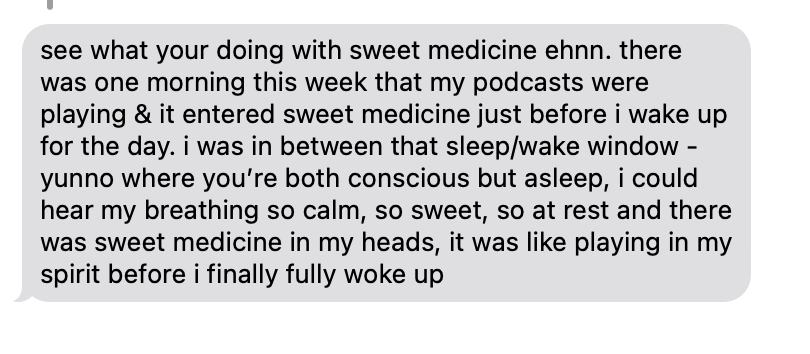

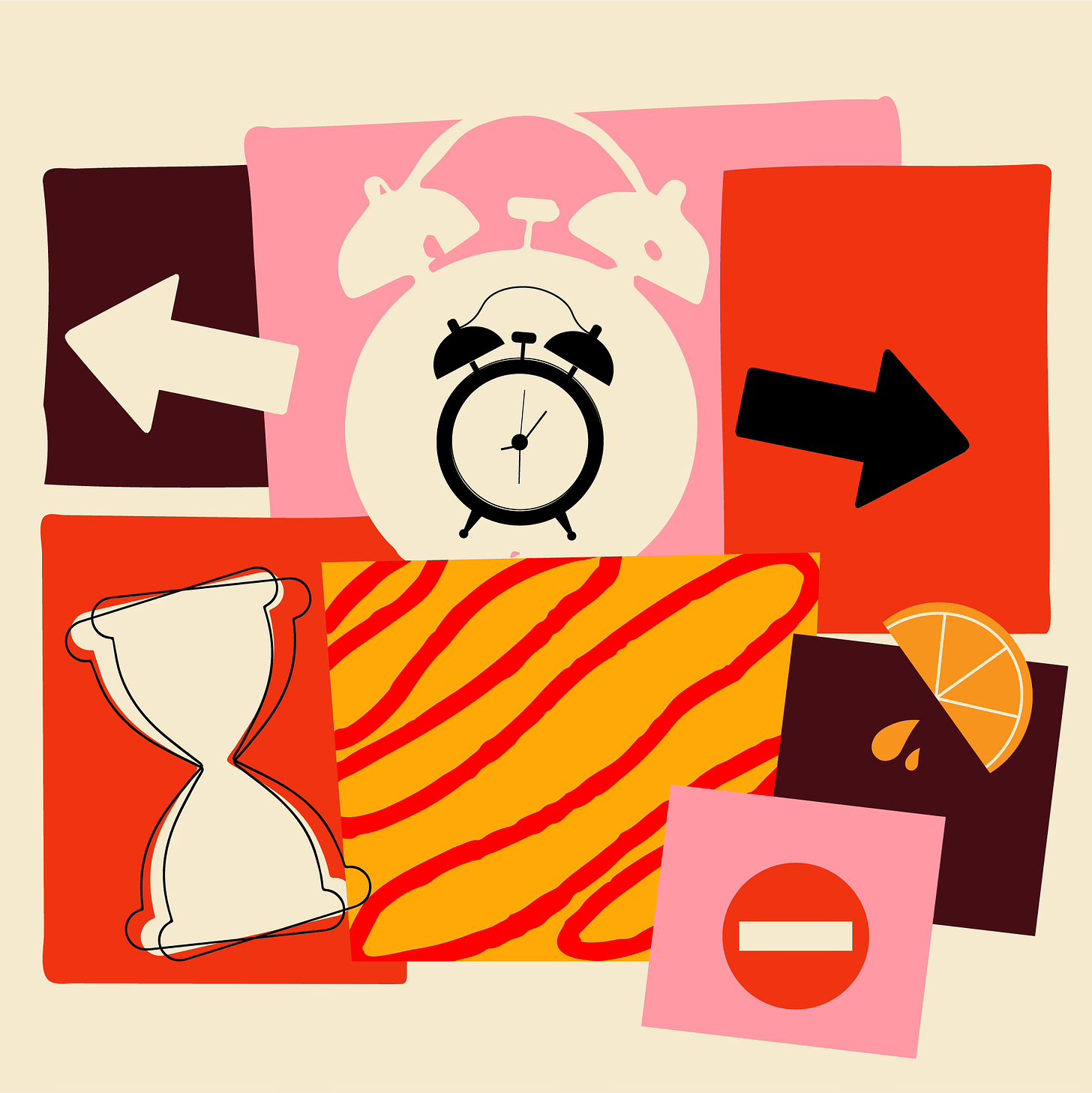
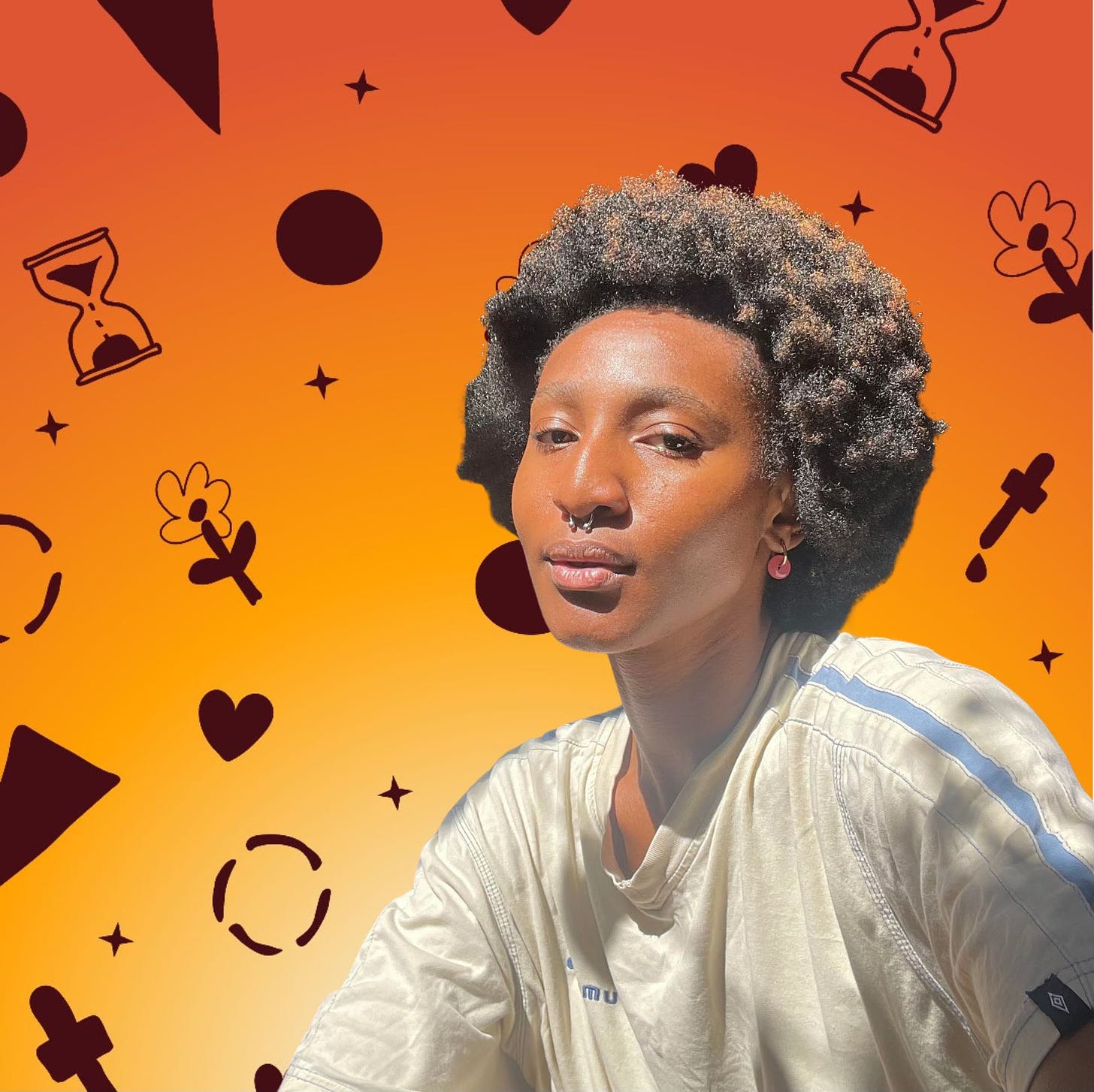
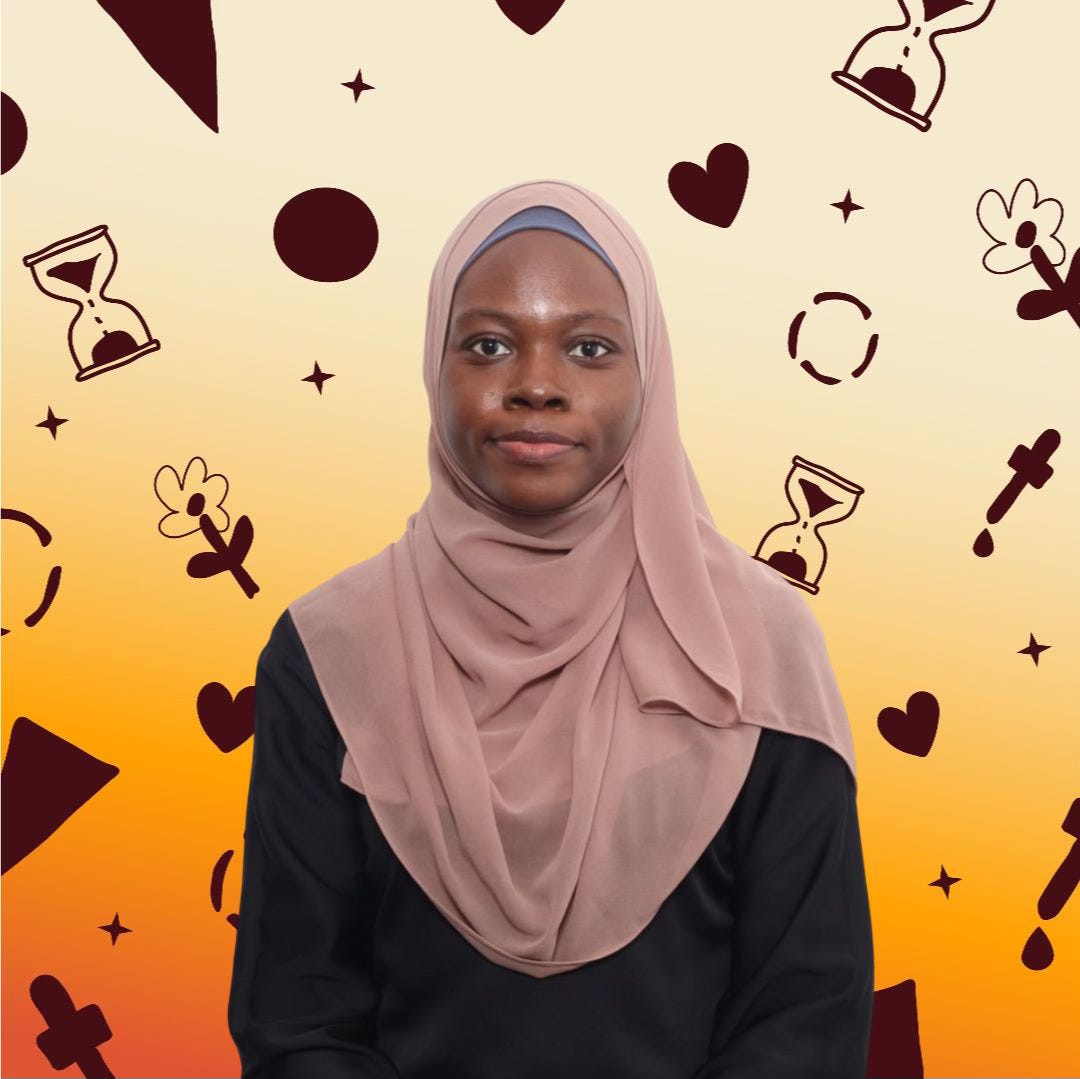








Share this post